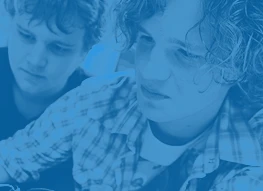TPS again had a strong presence at the Local Transport Summit which considered a wide range of topics and was hosted by the West Yorkshire Combined Authority in Bradford.
There were a wide range of sessions and workshops from addressing climate change to valuing local communities. This year TPS took 5 PDS trainees to the summit and there was a session on what young transport planners saw as the future for the profession. The summit ended with a session on skills, lead by TPS.
A longer report back and follow up actions are in hand but some instant takeaways were:
Urgency
As one consultant said “Now is the time to be bold!” Unlike some sectors (e.g. gas heating) the solutions for transport are already out there if we are brave enough to embrace them at pace. There was a lively discussion about whether consultants should consider not working on unsustainable projects, and whether such schemes should at least be put on hold and taken out of national and local authority plans. The point was made that a package of rail and road schemes was self-contradictory.
Local innovation
Some really interesting local initiatives like mobility zones were emerging and needed support. The current purdah meant that a full discussion with Government actors was not possible but it was felt this was an area which could expand rapidly and address a range of issues including placemaking, congestion, air quality and climate change.
Realism and Electric Vehicles
In a telling presentation it was clear that the speed with which EVs could simply replace conventional cars was severely limited by electricity distribution issues as cost and finding suitable sites. Freight was even more difficult and a substantial proportion of transport CO2. As one TPS member put it: “If you've big plans for EVs you may want to chat to someone from the grid about power supplies sharpish.” The point was made that EVs should not replicate existing patterns of car ownership. A break with the current pattern was needed so that shared options would replace individual ownership.
Demand management
While technology could not solve the carbon emissions problem, demand management for passenger and freight was back on the agenda. The huge loss of Government revenue was alone a reason for the development of road user charging. This should not obscure the need for transport and land use to be better co-ordinated. This provided an interesting mix at the conference: emphasis on a combination of innovative thinking, community involvement, new technology and more established methods like planning and pricing.
Collaboration
There was a lot about engaging the public on what would be even more contentious issues in future. Key players need to compete against each other less and collaborate more, establishing a compelling shared narrative from the profession that can bring the public (and elected members) along with us.
Photo of TPS Board Members Stephen Bennett and Kate Morris and Keith Buchan, Skills Director with PDS trainees














